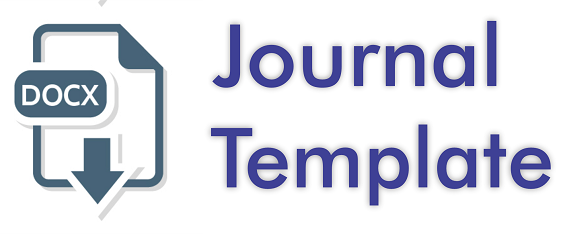Analisis Perbandingan Kinerja Keuangan Bank Syariah dan Bank Konvensional
DOI:
https://doi.org/10.59107/ri.v2i2.45Keywords:
Banking, Sharia Bank, Conventional Bank, FinanceAbstract
Banking institutions are the core of the financial system of every country. The types of banks in Indonesia are divided into two types of banks, namely banks based on conventional principles and banks based on sharia principles. The main difference between these two types of banks is in terms of price determination, both selling and buying prices. This research aims to determine and analyze the financial performance of sharia banking when compared with conventional banking for each financial ratio, analyzing the performance of sharia banking compared to conventional banking as a whole. This research uses descriptive qualitative methods with primary and secondary data approaches. Primary data is data obtained directly through interviews. Meanwhile, secondary data is data obtained through observation and documentation. The results of this research show that the differences between conventional banks and Sharia banks can be seen from the differences in philosophy, concept of managing customer funds, obligations to manage zakat, and organizational structure. Where Conventional Banks invest in halal and haram businesses, while Sharia Banks invest in businesses that are halal and in accordance with sharia principles sourced from the Qur'an and AL Hadith.
Downloads
References
Achta Pratama, F. (2022). Analisis Peran Pendidikan Vokasi Dalam Pengembangan Industri Halal di Indonesia. Risalah Iqtisadiyah: Journal of Sharia Economics, 1(1), 1–7. https://doi.org/10.59107/ri.v1i1.22
Alderson, J. Charles & Wall, D. (1992). No Titleバイオフィードバックへの工学的アプローチ. Japanese Society of Biofeedback Research, 19, 709–715. https://doi.org/10.20595/jjbf.19.0_3
Bahri, S. (2021). Implementasi Gemar Membaca Melalui Program Pojok Baca Pada Siswa SMP Negeri 1 Rambang. Jurnal Educatio, 7(4), 1706–1710. https://doi.org/10.31949/educatio.v7i4.1529
Irawan, H., Dianita, I., & Salsabila Mulya, A. D. (2021). Peran Bank Syariah Indonesia Dalam Pembangunan Ekonomi Nasional. Jurnal Asy-Syarikah: Jurnal Lembaga Keuangan, Ekonomi Dan Bisnis Islam, 3(2), 147–158. https://doi.org/10.47435/asy-syarikah.v3i2.686
Rasio, B., & Tahun, K. (2022). No Title. VII(I), 32–54.
Rosalina Rosa, Desi Aprilia, & Jeanne. (2022). Analisis Pengaruh Pembiayaan Murabahah, Pembiayaan Musyarakah Dan Sertifikat Bank Syariah (Sbs) Terhadap Profitabilitas Dengan Struktur Modal Sebagai Variabel Intervening Pada Perbankan Syariah Di Indonesia. Risalah Iqtisadiyah: Journal of Sharia Economics, 1(1), 16–25. https://doi.org/10.59107/ri.v1i1.17
Simatupang, H. B. (2019). Peranan perbankan dalam meningkatkan perekonomian indonesia. JRAM (Jurnal Riset Akuntansi Multiparadigma), 6(2), 136–146.
Syariah, B., Studi, K., Arinta, Y. N., & Kendal, S. (2016). Analisis Perbandingan Kinerja Keuangan antara Kasus pada Bank Syariah Mandiri dan Bank. 7, 119–140.
Wilarjo, S. B. (2014). Pengertian, Peranan, dan Perkembangan Bank Syariah di Indonesia. Igarss 2014, 2(1), 1–5.
Yusriadi. (2022). Bank Syariah dan Konvensional (Suatu Analisis Perbedaan dan Prinsip-prinsipnya). SYARAH : Jurnal Hukum Islam, 11(2).
Downloads
Published
Issue
Section
License
Copyright (c) 2024 RISALAH IQTISADIYAH: Journal of Sharia Economics

This work is licensed under a Creative Commons Attribution 4.0 International License.
License
The non-commercial use of the article will be governed by the Creative Commons Attribution license as currently displayed on http://creativecommons.org/licenses/by/4.0/. This licence allows the user to distribute, remix, tweak, and build upon the licensed work, including for commercial purposes, as long as the original author is credited.
Author’s Warranties
The author warrants that the article is original, written by stated author/s, has not been published before, contains no unlawful statements, does not infringe the rights of others, is subject to copyright that is vested exclusively in the author and free of any third party rights, and that any necessary written permissions to quote from other sources have been obtained by the author/s.
User Rights
Under the Creative Commons Attribution license, the author(s) and users are free to share (copy, distribute and transmit the contribution).
Rights of Authors
Authors retain the following rights:
- copyright, and other proprietary rights relating to the article, such as patent rights,
- the right to use the substance of the article in future own works, including lectures and books,
- the right to reproduce the article for own purposes, provided the copies are not offered for sale,
- the right to self-archive the article.
Co-Authorship
If the article was prepared jointly with other authors, the signatory of this form warrants that he/she has been authorized by all co-authors to sign this agreement on their behalf, and agrees to inform his/her co-authors of the terms of this agreement.
Termination
This agreement can be terminated by the author or RISALAH IQTISADIYAH: JOURNAL OF SHARIA ECONOMICS upon two months’ notice where the other party has materially breached this agreement and failed to remedy such breach within a month of being given the terminating party’s notice requesting such breach to be remedied. No breach or violation of this agreement will cause this agreement or any license granted in it to terminate automatically or affect the definition of RISALAH IQTISADIYAH: JOURNAL OF SHARIA ECONOMICS.
Royalties
This agreement entitles the author to no royalties or other fees. To such extent as legally permissible, the author waives his or her right to collect royalties relative to the article in respect of any use of the article by RISALAH IQTISADIYAH: JOURNAL OF SHARIA ECONOMICS or its sublicensee.
Miscellaneous
RISALAH IQTISADIYAH: JOURNAL OF SHARIA ECONOMICS will publish the article (or have it published) in the Journal, if the article’s editorial process is successfully completed and RISALAH IQTISADIYAH: JOURNAL OF SHARIA ECONOMICS or its sublicensee has become obligated to have the article published. RISALAH IQTISADIYAH: JOURNAL OF SHARIA ECONOMICS may conform the article to a style of punctuation, spelling, capitalization and usage that it deems appropriate. The author acknowledges that the article may be published so that it will be publicly accessible and such access will be free of charge for the readers. RISALAH IQTISADIYAH: JOURNAL OF SHARIA ECONOMICS will be allowed to sublicense the rights that are licensed to it under this agreement.



.png)
.png)






